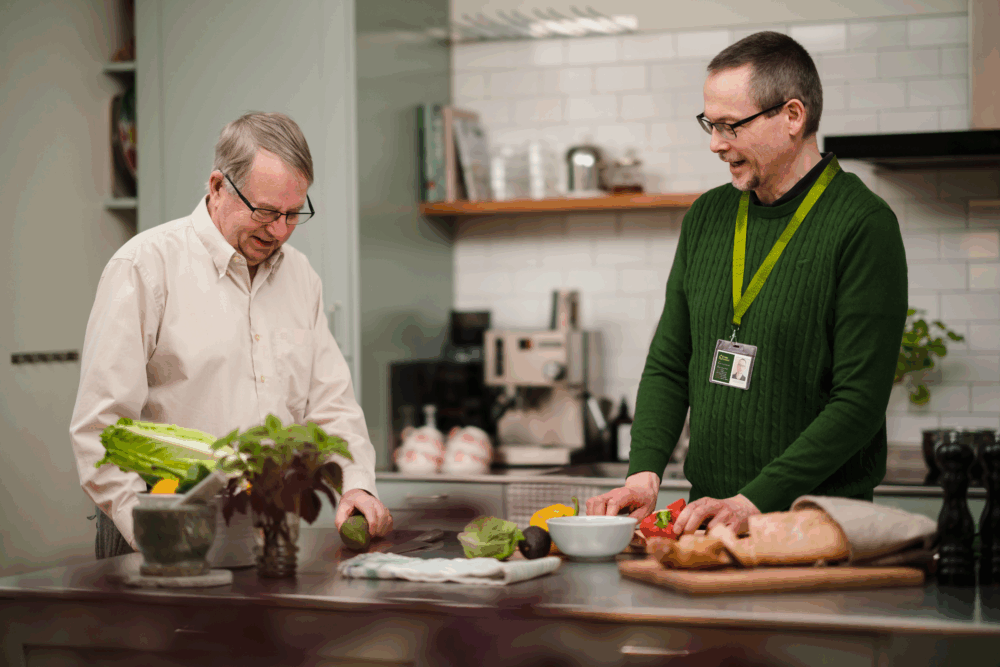Supporting Someone with Dementia: Eating & Nutrition Tips

Eating and drinking can become more challenging for people living with dementia. Changes in memory, coordination, appetite, and even taste can affect how someone enjoys food. With a few simple adjustments, mealtimes can remain a positive and nourishing experience.
At Home Instead, we understand how important good nutrition is for health and wellbeing. Here are some practical tips to support your loved one.

How Dementia Affects Eating & Drinking
Dementia can impact mealtimes in many ways:
-
Forgetting to eat or not recognising food.
-
Difficulty using cutlery or coordinating hand movements.
-
Problems with chewing and swallowing (dysphagia).
-
Reduced taste and smell, making food less appealing.
-
Visual challenges in seeing food clearly.
-
Changes in appetite, leading to eating too little or too much.

Practical Tips to Support Nutrition
1. Create a Calm Mealtime Environment
-
Keep meals at regular times to build routine.
-
Reduce distractions such as TV or background noise.
-
Use plain table settings and good lighting so food is easy to see.
2. Encourage Independence
-
Offer finger foods like sandwiches, fruit slices or cheese cubes.
-
Provide adaptive cutlery, non-slip mats, or handled cups.
-
Serve one dish at a time to avoid confusion.
3. Make Food Appealing
-
Prepare smaller, more frequent meals if large portions feel overwhelming.
-
Offer familiar and favourite foods for comfort.
-
Adapt textures, such as stewed fruit, scrambled eggs or soft vegetables – if chewing is difficult.
4. Boost Nutrition & Hydration
-
Add extra calories and nutrients with healthy fats, milk powder or cheese.
-
Offer drinks throughout the day, plus high-water foods like soup or melon.
-
Keep an eye on weight loss or signs of dehydration.
5. Communicate & Reassure
-
Eat together! It encourages participation and makes meals social.
-
Use gentle prompts to chew or sip, without rushing.
-
Be patient, positive, and flexible with changing tastes and needs.

When to Seek Help
It’s important to speak to a professional if your loved one is:
-
Coughing or choking regularly when eating.
-
Losing weight or avoiding food.
-
Showing signs of dental discomfort.
Specialists such as GPs, dietitians, and speech & language therapists can give tailored advice and support.

How Home Instead Can Help
Every person with dementia is unique. That’s why our Care Professionals at Home Instead are trained to provide personalised, compassionate support around mealtimes, whether that’s preparing nutritious meals, encouraging hydration, or offering a calm presence at the table.
If you’re caring for a loved one with dementia and would like support or advice, please contact our friendly team today. Alternatively, please do get in touch if you want to hear more about our home care services in Worthing. We’re here to help you and your family every step of the way.
